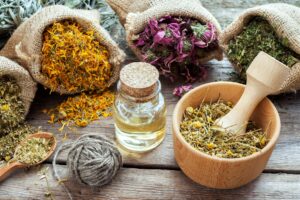Herbal healing has been practiced for centuries across cultures and continents. It involves using plant-based remedies to treat various health conditions, support the immune system, and promote overall well-being. For beginners, this form of care can offer a gentle and natural approach to health without relying on synthetic medications.
Why Choose Herbal Remedies?
Natural remedies are known for their fewer side effects, accessibility, and affordability. Unlike some pharmaceutical options, herbs often support the body’s natural healing processes. People also choose herbal remedies for their preventive properties, aiming to maintain balance and harmony in their physical and mental health.
Getting Started with Herbal Medicine
Before diving into herbal care, it’s essential to understand that each plant has its own properties, uses, and contraindications. Start small with familiar herbs like chamomile, peppermint, or ginger. These can be consumed as teas or used in topical applications and are well-tolerated by most people.
Common Herbs and Their Benefits
Many herbs offer multiple benefits. For example:
-
Chamomile: Known for its calming effects and digestive support.
-
Peppermint: Great for soothing stomach upset and tension headaches.
-
Ginger: A powerful anti-inflammatory used for nausea and pain relief.
-
Turmeric: Popular for its antioxidant and anti-inflammatory properties.
-
Lavender: Often used for anxiety relief and better sleep.
Forms of Herbal Remedies
Herbs can be used in different ways depending on the desired effect. Some of the most common forms include:
-
Teas and infusions for calming or digestive support.
-
Tinctures (alcohol-based extracts) for more concentrated dosing.
-
Capsules for convenience.
-
Salves and ointments for external application on wounds or rashes.
-
Essential oils for aromatherapy or topical use.
Safety and Precautions
While herbs are natural, they are not always safe for everyone. It’s important to:
-
Consult a healthcare provider before beginning any herbal regimen, especially if you’re pregnant, breastfeeding, or on medication.
-
Be cautious with dosages and avoid overuse.
-
Source your herbs from reputable providers to ensure purity and potency.
Creating Your Herbal Routine
Start by identifying your wellness goals—whether it’s better sleep, stress relief, or digestive health. Choose 1–2 herbs to incorporate into your daily routine. Herbal teas in the evening or a few drops of tincture in the morning can make a gentle and effective start.
Growing Your Own Herb Garden
Growing herbs at home is a rewarding and empowering way to embrace natural healing. Herbs like mint, basil, rosemary, and lemon balm are easy to grow and offer fresh, effective ingredients for teas and remedies right from your garden or windowsill.
Final Thoughts
Herbal care is a journey of reconnecting with nature and tuning into your body’s needs. By starting small, learning as you go, and practicing with intention, you can tap into the ancient wisdom of plant medicine and nurture your health in a natural and sustainable way.
Let me know if you’d like to turn this into a blog post or want to add specific remedies!




